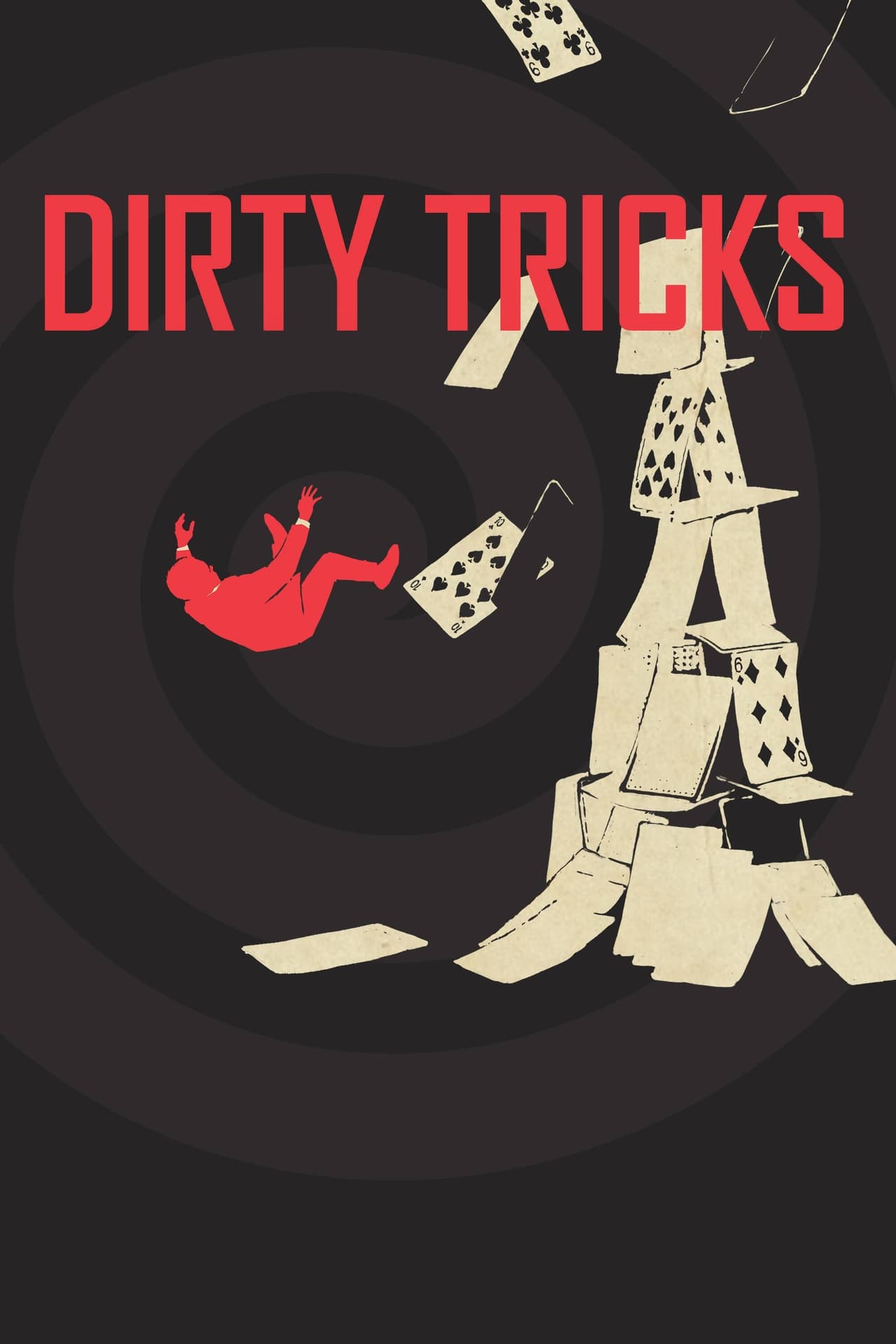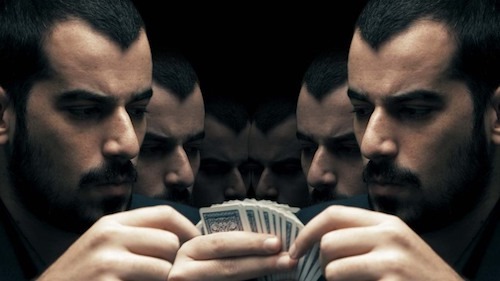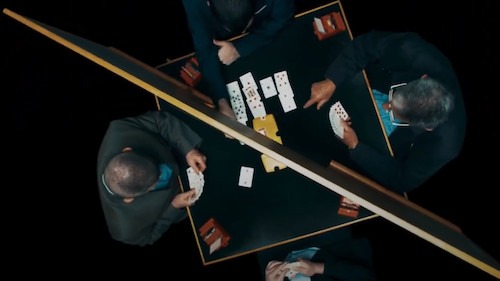
Your cheatin' hearts
In August 2015, four of the world’s top bridge players - Norwegians Boye Brogeland and Espen Lindqvist, and Americans Allan Graves and Richie Schwartz - announced that they were relinquishing three championship titles they had won while playing as a team in 2014 and 2015. One of these was for the 2014 Spingold Knockout Championship; to understand how big a deal that is in the bridge world, imagine a tennis player handing back their Wimbledon trophy. The four players did not name any names in their announcement, but Brogeland’s explanation didn’t leave much to the imagination: “If you have a cheating pair on your team, I believe you should lose whatever [awards] you have won together.” Only one pair remained on the team: Lotan Fisher and Ron Schwartz of Israel. What followed was a months-long crowdsourced investigation not only into Fisher and Schwartz, but into several top-ranked bridge competitors, including Fulvio Fantoni and Claudio Nunes, then ranked #1 and #2 in the world. At the time, some players and commentators mused that the story would make a good movie. That movie now exists in the form of Dirty Tricks, which premiered at Hot Docs last year and has now achieved wide release through Showtime.
Dirty Tricks, written and directed by Daniel Sivan for Tel Aviv-based yes Studios, brings duplicate bridge to the screen in a documentary about...well, that claims to be about the Fisher-Schwartz cheating scandal. In reality, it's the grand tale of the rise and fall of Lotan Fisher, a rare child bridge prodigy whose first bridge teacher expected him to become one of the best players, if not the best player, in the world. Dirty Tricks works very, very well as character study of Fisher. As a documentary or as a movie about bridge, Dirty Tricks is far less successful, and viewers hoping to come away having learned something about the world of bridge might come away wanting.
Dirty Tricks opens with a clip from the beginning of the educational video Play Bridge with Omar Sharif, in which the renowned duplicate bridge champion (and, I’m told, occasional movie star), clad in suit and tie, suavely promises “an introduction to the world’s most fascinating card game.” He is followed by the fashion designer Isaac Mizrahi loudly and unconvincingly declaring that, as far as he’s concerned, “nobody cool doesn’t play bridge.” Right away, Sivan is doing his darnedest to make bridge look posh and sexy, not like that thing your grandma and her friends do on Saturday afternoons. He does this mostly to set up the introduction of his protagonist Lotan Fisher. In fact, just about everything he does, he does to serve the story of Lotan Fisher.

Young, handsome, brilliant, and equipped with an ego inflated enough to carry him off into space, Fisher stands out from everyone else, even the other bridge experts who surround him throughout Dirty Tricks. The film presents him as an enigmatic troubled genius in the grand tradition of Good Will Hunting or A Beautiful Mind (neither of which, you may note, are documentaries). We see home movies from his childhood in which he demonstrates his photographic memory, and we hear about his ambition to be the greatest bridge player in history. We hear the story of his first ethics violation, which got him suspended from competitive play in Israel for two years. We hear him talk at length about his incredible intuition for the game, so incredible that he can’t explain the plays he makes to other people. This background sets him up as a complex and compelling antihero, at turns likable and punchable, and gets us invested in what he’s going to bring upon himself.
Of course, the antihero needs a nemesis, and Dirty Tricks becomes most watchable as it tells the story of the fateful match in the 2015 Spingold between Fisher’s team and Boye Brogeland’s team that convinced Brogeland the pair must have been cheating. A brightly colored scoreboard counts the points as the gap between the two teams shrinks, then grows, then shrinks again. When Fisher’s team ekes out a one-point win on an appeal, Brogeland’s disappointment and disbelief are palpable even years later. At this point, the film carefully plants the notion that Brogeland’s accusations were motivated by jealousy, refusal to accept that this upstart whippersnapper could really be a better player than him. This version of Brogeland works very well as an antagonist for Fisher: Dirty Tricks wants to leave it up to the viewer to decide whether he’s a righteous crusader for honesty in his game or a victim of the green-eyed monster. Unfortunately, in order to make that ambiguity work, Sivan has to leave out most of the story of how, rather than just why, Brogeland came to his conclusion. Because that would involve talking about bridge, and as you may have noticed, Sivan is quite anxious to minimize the time he spends on bridge in his movie about bridge.
Because it isn’t actually interested in the game of bridge, the film starts to suffer once it attempts to shift its focus from Fisher’s life story to the fallout from Brogeland’s accusations. It devotes only as much time to the community of top players who worked together to catch Fisher and Schwartz sending each other secret signals as it does to building suspense over whether Fisher and Schwartz will pass a polygraph test. It devotes no time at all to the bridge-based reasons behind other players’ suspicions, leaving the impression that most of them are convinced of Fisher’s guilt simply because they don’t like him. Since it’s not in the movie, you will have to take my word for it: the process that led to this pair getting caught was fascinating, had layers upon layers, can be understood by non-players with a little effort, and would have been very filmable with some clever animation. But you won’t learn that from Dirty Tricks.

Aside from this thankless cast of bridge professionals, a few other supporting characters lurk around the edges of Dirty Tricks, mostly (again) to talk about Lotan Fisher. Most sympathetic and engaging among them is Ketty Fisher, Lotan’s mother. Even if you are one hundred percent convinced that Fisher himself is lying, cheating scum, it is impossible not to feel your heart ache for Ketty, a mom who adores her son and desperately wants to be proud of him, even when she isn’t sure how much she is allowed to be. She remains determined and composed through most of her interviews, but her voice wavers as she describes comforting her son in some of his darkest moments. As the camera lingers on her gazing despondently at a dusty case of old bridge trophies, Dirty Tricks - a loud and talkative movie for most of its runtime - lets us quietly observe that the cheater’s victims include not only the people he cheats, but the people he loves.
On the flip side we have Fisher’s partner, in bridge and in alleged crime, Ron Schwartz, whose guts Dirty Tricks just seems to hate. While even Fisher’s biggest naysayers acknowledged that, ethical issues aside, Fisher was an outstanding bridge player, no one has such nice things to say about Schwartz. In fact, we get a rather cruel montage of top bridge players making increasingly nasty and dismissive comments about Schwartz’s lackluster bridge game. Even Fisher treats him as more of a dopey sidekick than a real partner. On the other hand, along with Fisher’s contemptuous treatment of an online partner towards the end of the film, the sidelining of Ron Schwartz effectively embeds within the film one of the most fundamental flaws of Fisher’s bridge game, cheating or no cheating: he thinks it revolves around him. One of the experts interviewed speculates that Fisher agreed to play with Schwartz because Schwartz would do whatever Fisher wanted, and Fisher’s own comments support that interpretation of their so-called partnership. Schwartz was only ever meant to be a supporting character in The Lotan Fisher Story, and that’s all he ever is in Dirty Tricks. Because Dirty Tricks is also only interested in being The Lotan Fisher Story.
As a bridge player myself who followed the Fisher-Schwartz story obsessively when it broke, I admit that I come to this movie and this review with biases galore. I share the majority opinion in the bridge world that Fisher and Schwartz were guiltier than Macbeth and Lady Macbeth combined. So perhaps that colors my view of this entertaining and well-crafted story of a man whose ambition shone brighter than his talent. I respect it for what it does well, and Daniel Sivan clearly has a lot of potential as a storyteller. But ultimately, Dirty Tricks makes the same mistake as its protagonist: it prioritizes sensationalism and sexy allure over the hard and unglamorous work sometimes required to do things the right way.
Mandy Albert teaches high school English and watches movies - mostly bad, occasionally good - in the psychedelic swamplands of South Florida. She is especially fond of 1970s horror and high-sincerity, low-talent vanity projects. You can listen to her and her husband talk about Star Trek: Enterprise on their podcast At Least There's a Dog!
Dirty Tricks, written and directed by Daniel Sivan for Tel Aviv-based yes Studios, brings duplicate bridge to the screen in a documentary about...well, that claims to be about the Fisher-Schwartz cheating scandal. In reality, it's the grand tale of the rise and fall of Lotan Fisher, a rare child bridge prodigy whose first bridge teacher expected him to become one of the best players, if not the best player, in the world. Dirty Tricks works very, very well as character study of Fisher. As a documentary or as a movie about bridge, Dirty Tricks is far less successful, and viewers hoping to come away having learned something about the world of bridge might come away wanting.
Dirty Tricks opens with a clip from the beginning of the educational video Play Bridge with Omar Sharif, in which the renowned duplicate bridge champion (and, I’m told, occasional movie star), clad in suit and tie, suavely promises “an introduction to the world’s most fascinating card game.” He is followed by the fashion designer Isaac Mizrahi loudly and unconvincingly declaring that, as far as he’s concerned, “nobody cool doesn’t play bridge.” Right away, Sivan is doing his darnedest to make bridge look posh and sexy, not like that thing your grandma and her friends do on Saturday afternoons. He does this mostly to set up the introduction of his protagonist Lotan Fisher. In fact, just about everything he does, he does to serve the story of Lotan Fisher.

Young, handsome, brilliant, and equipped with an ego inflated enough to carry him off into space, Fisher stands out from everyone else, even the other bridge experts who surround him throughout Dirty Tricks. The film presents him as an enigmatic troubled genius in the grand tradition of Good Will Hunting or A Beautiful Mind (neither of which, you may note, are documentaries). We see home movies from his childhood in which he demonstrates his photographic memory, and we hear about his ambition to be the greatest bridge player in history. We hear the story of his first ethics violation, which got him suspended from competitive play in Israel for two years. We hear him talk at length about his incredible intuition for the game, so incredible that he can’t explain the plays he makes to other people. This background sets him up as a complex and compelling antihero, at turns likable and punchable, and gets us invested in what he’s going to bring upon himself.
Of course, the antihero needs a nemesis, and Dirty Tricks becomes most watchable as it tells the story of the fateful match in the 2015 Spingold between Fisher’s team and Boye Brogeland’s team that convinced Brogeland the pair must have been cheating. A brightly colored scoreboard counts the points as the gap between the two teams shrinks, then grows, then shrinks again. When Fisher’s team ekes out a one-point win on an appeal, Brogeland’s disappointment and disbelief are palpable even years later. At this point, the film carefully plants the notion that Brogeland’s accusations were motivated by jealousy, refusal to accept that this upstart whippersnapper could really be a better player than him. This version of Brogeland works very well as an antagonist for Fisher: Dirty Tricks wants to leave it up to the viewer to decide whether he’s a righteous crusader for honesty in his game or a victim of the green-eyed monster. Unfortunately, in order to make that ambiguity work, Sivan has to leave out most of the story of how, rather than just why, Brogeland came to his conclusion. Because that would involve talking about bridge, and as you may have noticed, Sivan is quite anxious to minimize the time he spends on bridge in his movie about bridge.
Because it isn’t actually interested in the game of bridge, the film starts to suffer once it attempts to shift its focus from Fisher’s life story to the fallout from Brogeland’s accusations. It devotes only as much time to the community of top players who worked together to catch Fisher and Schwartz sending each other secret signals as it does to building suspense over whether Fisher and Schwartz will pass a polygraph test. It devotes no time at all to the bridge-based reasons behind other players’ suspicions, leaving the impression that most of them are convinced of Fisher’s guilt simply because they don’t like him. Since it’s not in the movie, you will have to take my word for it: the process that led to this pair getting caught was fascinating, had layers upon layers, can be understood by non-players with a little effort, and would have been very filmable with some clever animation. But you won’t learn that from Dirty Tricks.

Aside from this thankless cast of bridge professionals, a few other supporting characters lurk around the edges of Dirty Tricks, mostly (again) to talk about Lotan Fisher. Most sympathetic and engaging among them is Ketty Fisher, Lotan’s mother. Even if you are one hundred percent convinced that Fisher himself is lying, cheating scum, it is impossible not to feel your heart ache for Ketty, a mom who adores her son and desperately wants to be proud of him, even when she isn’t sure how much she is allowed to be. She remains determined and composed through most of her interviews, but her voice wavers as she describes comforting her son in some of his darkest moments. As the camera lingers on her gazing despondently at a dusty case of old bridge trophies, Dirty Tricks - a loud and talkative movie for most of its runtime - lets us quietly observe that the cheater’s victims include not only the people he cheats, but the people he loves.
On the flip side we have Fisher’s partner, in bridge and in alleged crime, Ron Schwartz, whose guts Dirty Tricks just seems to hate. While even Fisher’s biggest naysayers acknowledged that, ethical issues aside, Fisher was an outstanding bridge player, no one has such nice things to say about Schwartz. In fact, we get a rather cruel montage of top bridge players making increasingly nasty and dismissive comments about Schwartz’s lackluster bridge game. Even Fisher treats him as more of a dopey sidekick than a real partner. On the other hand, along with Fisher’s contemptuous treatment of an online partner towards the end of the film, the sidelining of Ron Schwartz effectively embeds within the film one of the most fundamental flaws of Fisher’s bridge game, cheating or no cheating: he thinks it revolves around him. One of the experts interviewed speculates that Fisher agreed to play with Schwartz because Schwartz would do whatever Fisher wanted, and Fisher’s own comments support that interpretation of their so-called partnership. Schwartz was only ever meant to be a supporting character in The Lotan Fisher Story, and that’s all he ever is in Dirty Tricks. Because Dirty Tricks is also only interested in being The Lotan Fisher Story.
As a bridge player myself who followed the Fisher-Schwartz story obsessively when it broke, I admit that I come to this movie and this review with biases galore. I share the majority opinion in the bridge world that Fisher and Schwartz were guiltier than Macbeth and Lady Macbeth combined. So perhaps that colors my view of this entertaining and well-crafted story of a man whose ambition shone brighter than his talent. I respect it for what it does well, and Daniel Sivan clearly has a lot of potential as a storyteller. But ultimately, Dirty Tricks makes the same mistake as its protagonist: it prioritizes sensationalism and sexy allure over the hard and unglamorous work sometimes required to do things the right way.
Mandy Albert teaches high school English and watches movies - mostly bad, occasionally good - in the psychedelic swamplands of South Florida. She is especially fond of 1970s horror and high-sincerity, low-talent vanity projects. You can listen to her and her husband talk about Star Trek: Enterprise on their podcast At Least There's a Dog!
Categories: documentaries, israeli cinema, sports films






